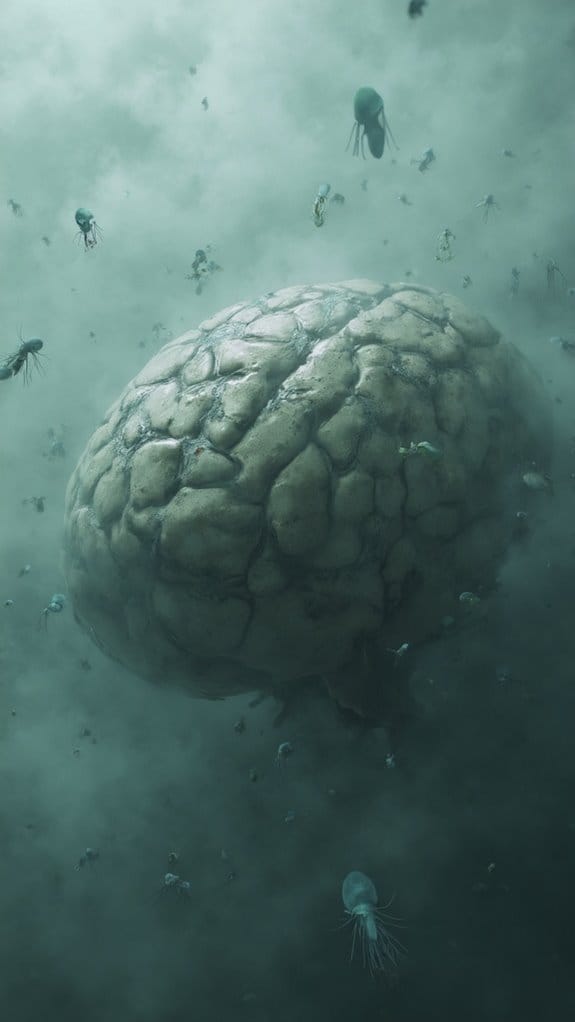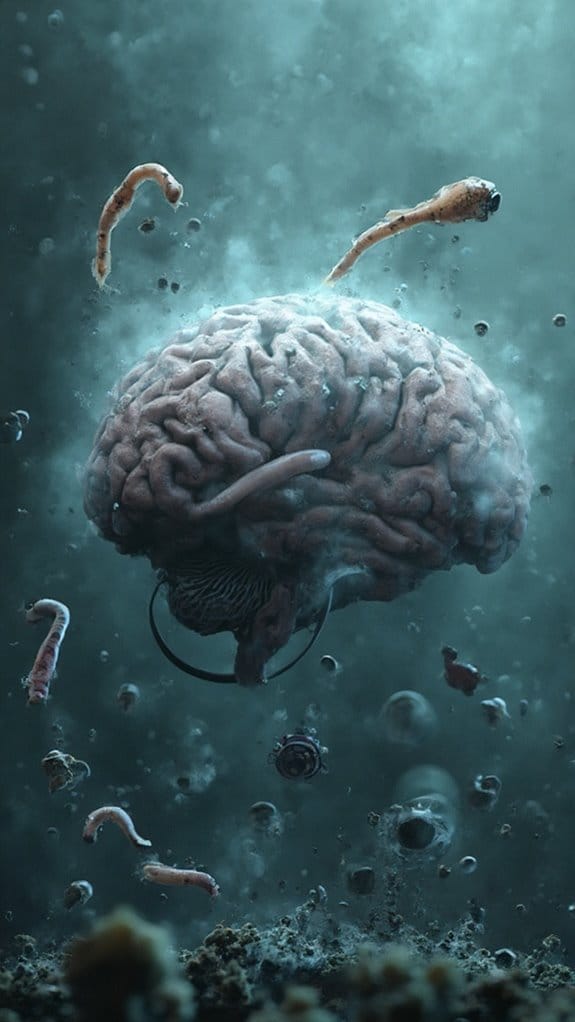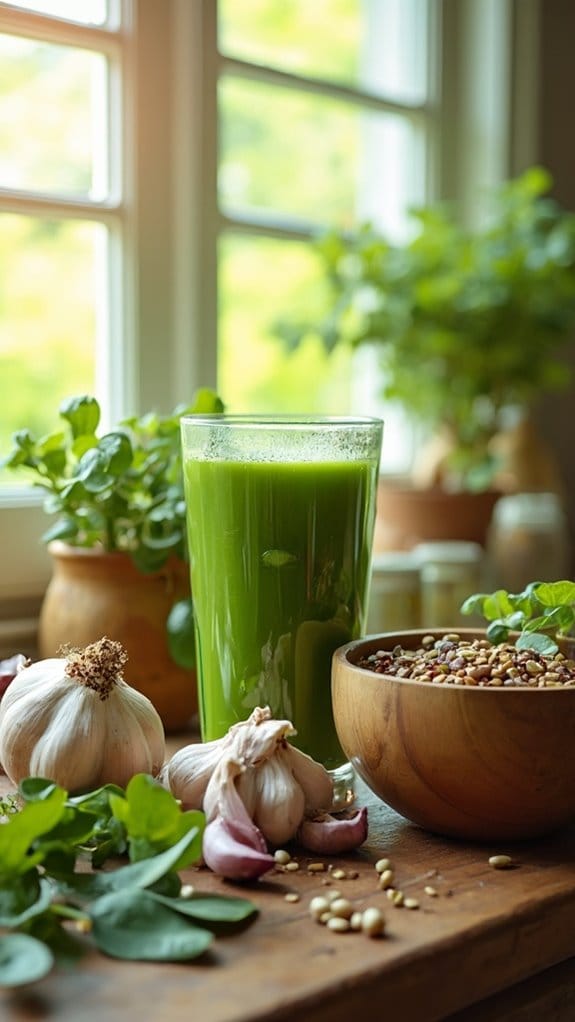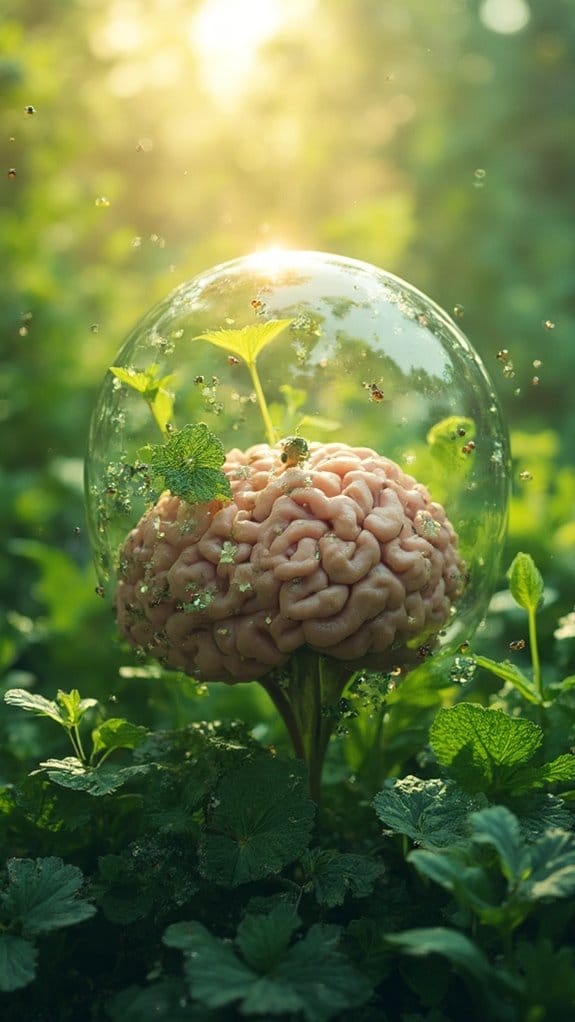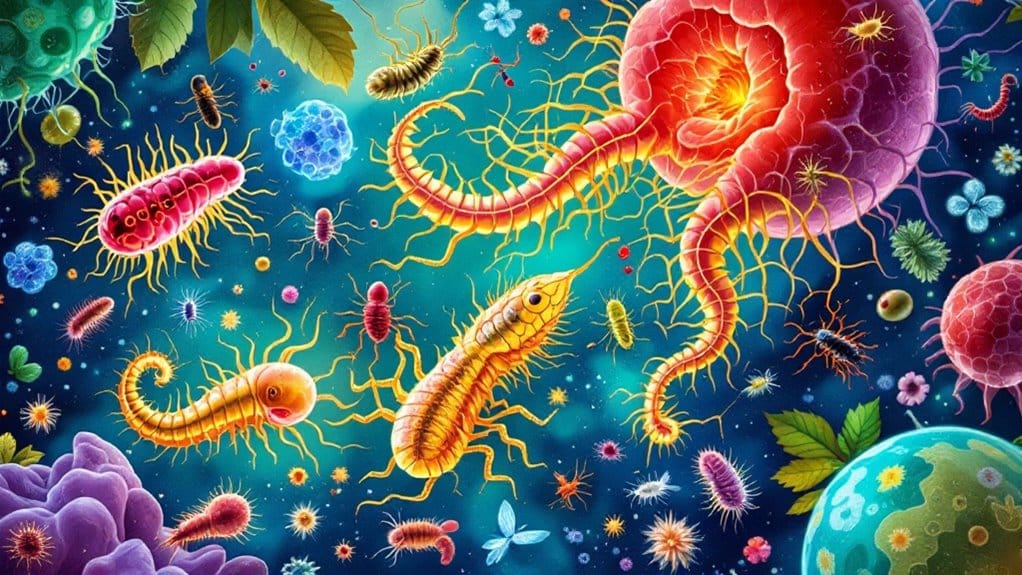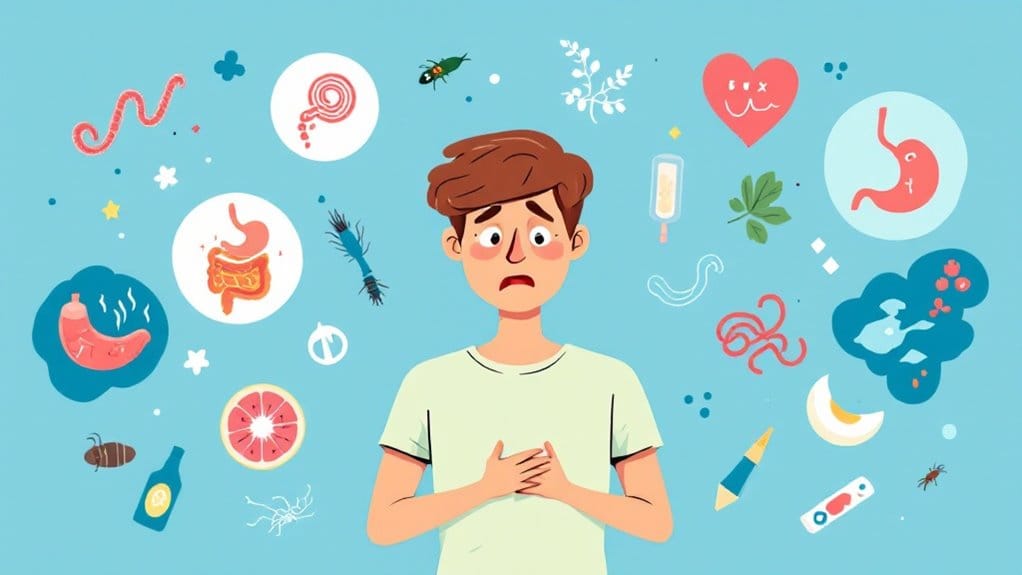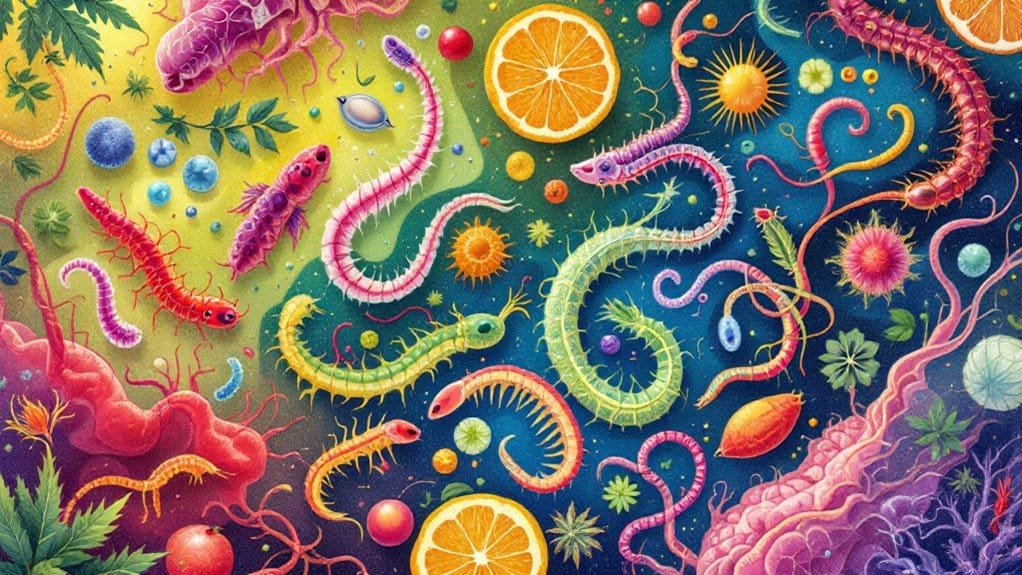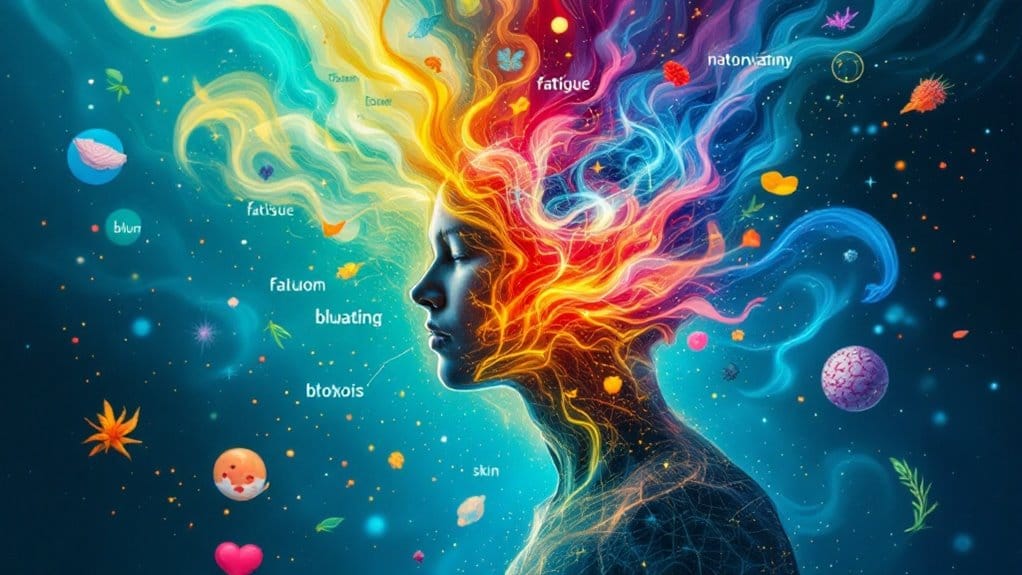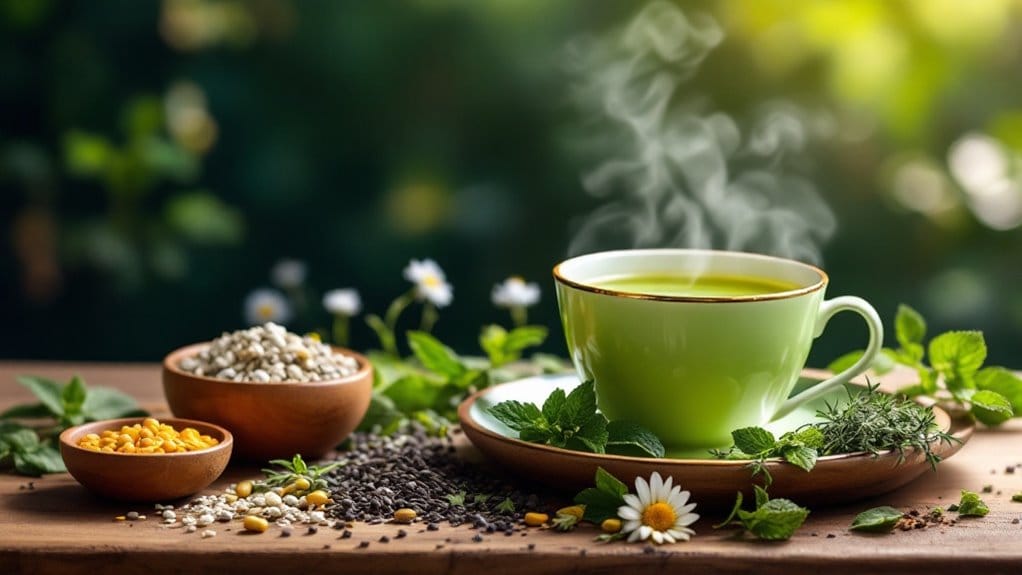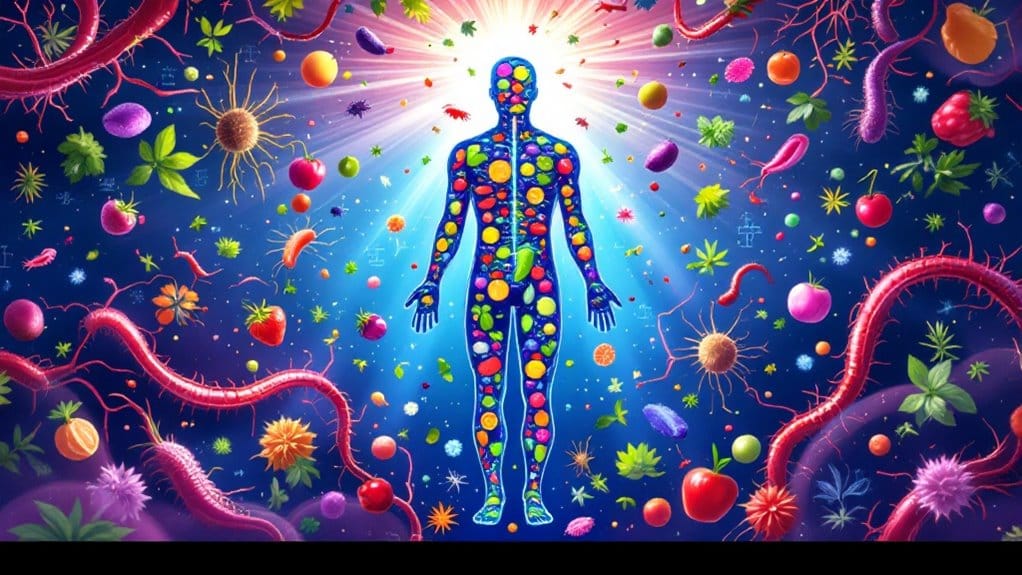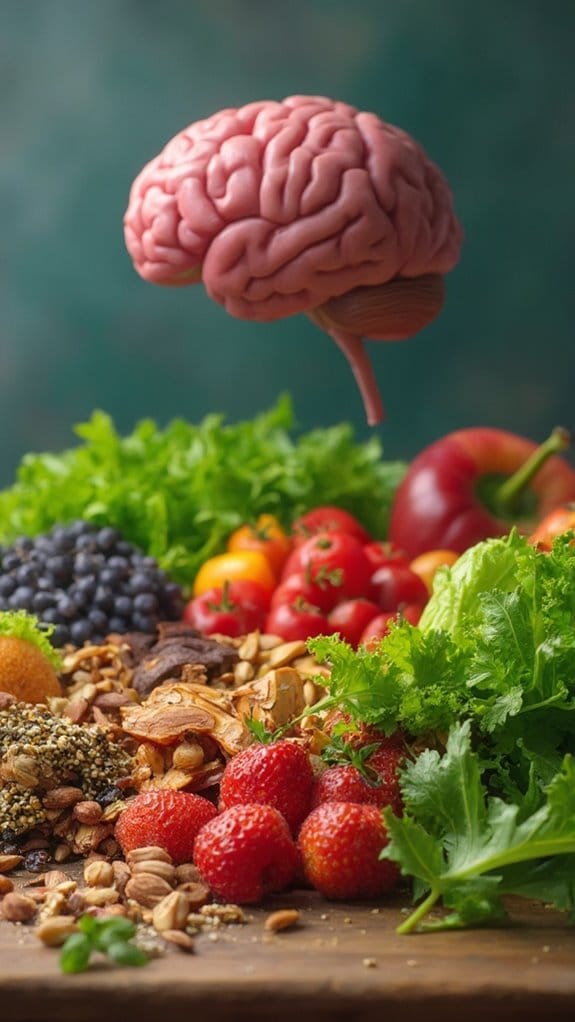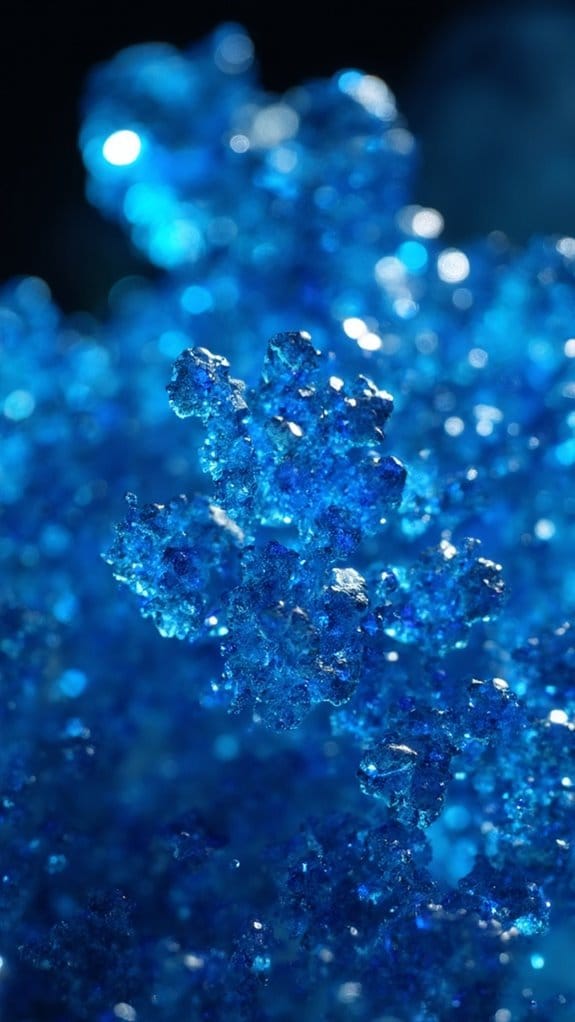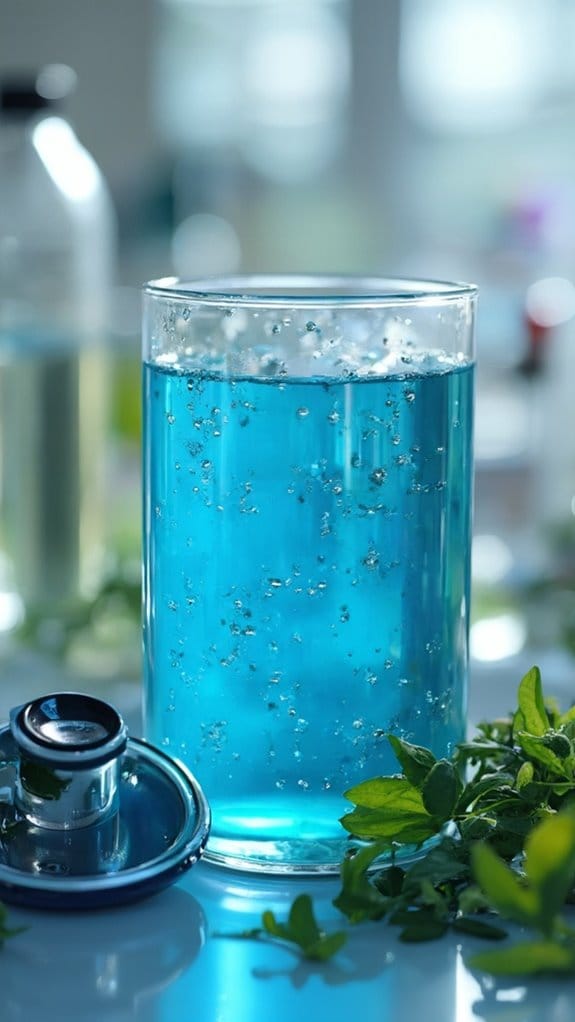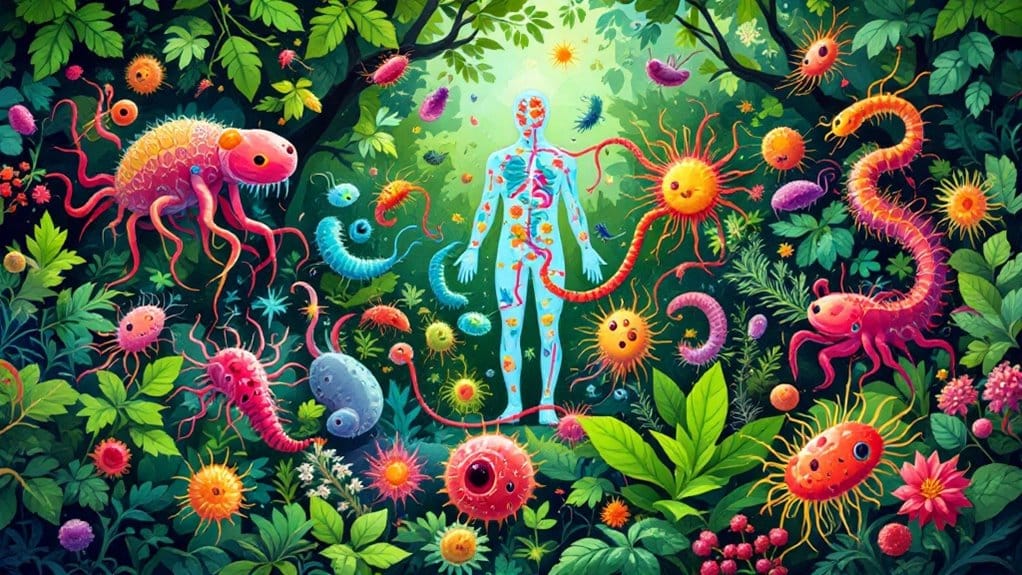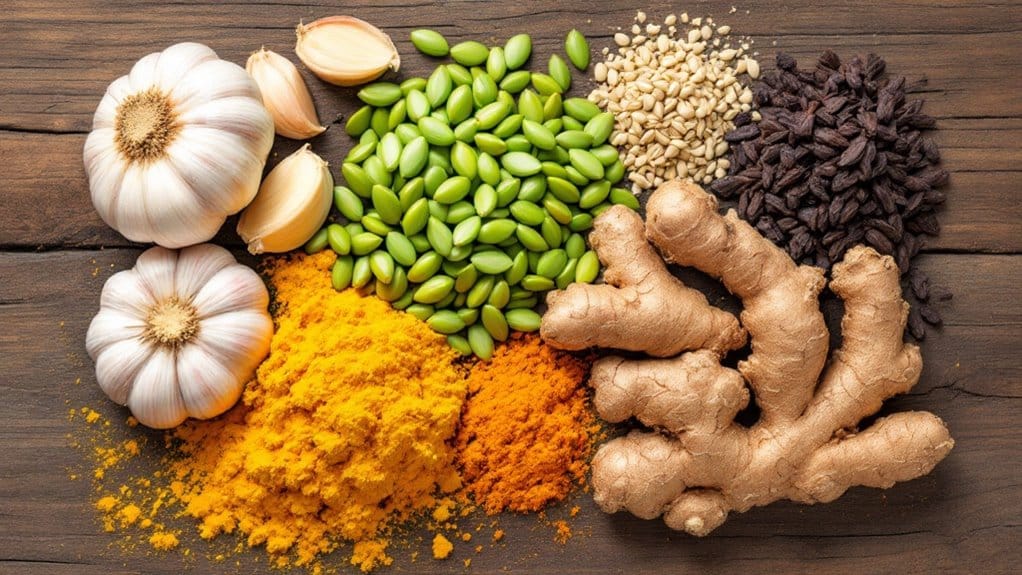Natural Cleanse: Clean Your Body Safely With These Home Remedies
Want to give your body a refresh? Natural cleansing can help! Start with hydration—try lemon water in the morning to boost metabolism or sip herbal teas to calm your mind. Add fiber-rich foods to your diet, like fruits and veggies, to support digestion. Don't forget apple cider vinegar, the versatile tonic that balances blood sugar. Gentle juice cleanses are a tasty way to detox. Curious about specific juice recipes and more tips? There's plenty more to discover!
Key Takeaways
- Incorporate fiber-rich foods like fruits and vegetables to support gut health and detoxification.
- Stay hydrated by drinking lemon water throughout the day for improved digestion and reduced cravings.
- Utilize herbal teas to boost your immune system and promote relaxation during your cleansing process.
- Consider gentle juice cleanses using ingredients like spinach, carrots, and berries for a flavorful detox experience.
- Add apple cider vinegar to your routine for digestive support and blood sugar regulation.
Benefits of Natural Cleansing

When it comes to natural cleansing, you might be surprised by just how many benefits come with it! Many people are drawn to the idea of detoxing, but there are plenty of detox myths that can lead you astray. Natural cleansing can support your body’s ability to eliminate toxins, promoting overall health benefits. Think about it: by incorporating whole foods, hydration, and fiber-rich ingredients into your diet, you’re giving your body the tools it needs to thrive.
You might notice improved digestion, increased energy levels, and healthier skin as you commence on this journey. Plus, natural cleansing often helps reduce cravings for junk food, making it easier to stick to healthier choices. Additionally, it can be beneficial to rebuild gut health after eliminating harmful organisms that may be affecting your well-being.
Isn’t it great to know that you can support your body’s natural functions without relying on extreme diets or expensive supplements? Embrace the benefits of natural cleansing, and let your body shine!
Hydrating With Lemon Water
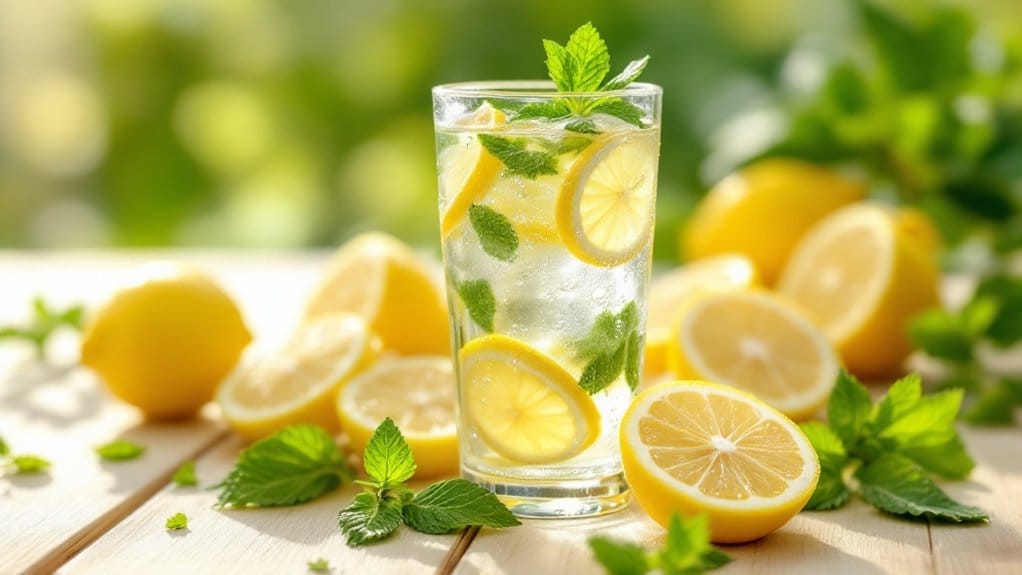
Hydrating with lemon water is a fantastic way to kickstart your natural cleansing journey. Not only does it taste invigorating, but it also packs a punch with numerous lemon benefits. Lemons are rich in vitamin C and antioxidants, promoting hydration and aiding digestion. So, how can you incorporate this simple drink into your daily routine? Here are some hydration tips to get you started:
| Time of Day | Lemon Water Benefits | Tips for Enjoyment |
|---|---|---|
| Morning | Boosts metabolism | Add a slice of ginger |
| Midday | Improves digestion | Mix with sparkling water |
| Afternoon | Reduces cravings | Infuse with mint |
| Evening | Promotes skin health | Sweeten with honey |
The Power of Herbal Teas

When you think of herbal teas, do you picture a warm cup full of comfort and health? These delightful brews not only taste great but also pack a punch with their cleansing benefits. Whether you’re a fan of chamomile or prefer peppermint, finding the right tea and brewing it effectively can make all the difference in your wellness journey.
Benefits of Herbal Teas
Herbal teas aren’t just warm, comforting drinks; they’re nature’s little miracles packed with benefits that can give your body a gentle cleanse.
Have you ever considered how herbal tea can support your health?
- They can boost your immune system, helping fend off those pesky colds.
- Herbal teas aid digestion, making it easier for your body to process food.
- Many varieties help reduce stress and promote relaxation, perfect after a long day.
With so many herbal tea benefits, it’s no wonder they’ve been cherished for centuries. Whether you choose chamomile, peppermint, or ginger, each tea variety offers unique properties.
Popular Herbal Tea Varieties
If you’ve already discovered the incredible benefits of herbal teas, you might be wondering which ones to try next. Let’s explore some popular herbal infusions that can enhance your wellness journey. For a comforting experience, chai blends, rich in spices like cinnamon and ginger, not only warm you up but also boost your metabolism.
Another fantastic choice is peppermint tea, known for its soothing properties, perfect after a meal. Chamomile tea, famous for its calming effects, can help you wind down after a long day. Each herbal infusion brings unique flavors and benefits, making it easy to find one that suits your taste.
Brewing Techniques for Effectiveness
Ever wondered how to brew the perfect cup of herbal tea? It’s all about getting the brewing temperature and steeping time just right. Here’s how to make your tea truly shine:
- Choose the right herbs: Different herbs require different brewing techniques.
- Control the heat: Most herbal teas crave a boiling temperature, but delicate varieties need a gentler touch.
- Mind the clock: Steeping for too short or too long can ruin your tea's flavor.
Aim for around 5-10 minutes of steeping time to reveal the full taste and benefits.
Fiber-Rich Foods for Detoxification

Have you ever thought about how fiber can be your secret weapon for detoxification? Not only does dietary fiber give your digestive system a boost, but it also helps flush out toxins you mightn't even realize are hanging around. Let’s explore some high-fiber food sources and easy ways to incorporate them into your daily meals—your body will thank you!
Benefits of Dietary Fiber
When it comes to detoxifying your body, dietary fiber often takes center stage, and for good reason! Including fiber in your diet can greatly boost your fiber digestion, helping your body eliminate waste more effectively. Plus, it keeps you feeling full, which can prevent those pesky cravings.
Here are some key benefits of dietary fiber:
- Supports gut health: Promotes beneficial bacteria in your digestive system.
- Regulates blood sugar: Helps slow sugar absorption, preventing spikes.
- Aids in detoxification: Binds to toxins and helps flush them out.
High-Fiber Food Sources
If you want to give your body a boost in detoxification, incorporating high-fiber foods into your meals is a great way to start! Fiber sources like fruits, vegetables, legumes, and whole grains not only keep your digestive system happy but also help eliminate toxins.
Think about it—when you enjoy a bowl of oatmeal or munch on some berries, you’re reaping the fiber benefits that support your body's natural cleansing process. Plus, fiber keeps you feeling full, which can help curb those snack cravings.
So, why not add a colorful salad or some chickpeas to your plate? Your body will thank you, and you might just feel lighter and more energized. Now, who wouldn't want that?
Incorporating Fiber Daily
Incorporating fiber into your daily routine can elevate your detox game! Fiber is essential for maintaining gut health, and it helps flush out toxins while keeping you full. So, how can you boost your daily intake?
Here are some fiber sources to take into account:
- Fruits and veggies: Apples, carrots, and broccoli are great options.
- Whole grains: Oats, quinoa, and brown rice pack a fiber punch.
- Legumes: Beans, lentils, and chickpeas aren't only tasty but fiber-rich too!
Start small and gradually increase your fiber intake to avoid any digestive discomfort. By making simple swaps in your meals, you'll feel lighter and more energized in no time. Ready to detox naturally? Let’s get fiber-ing!
Apple Cider Vinegar: A Versatile Tonic
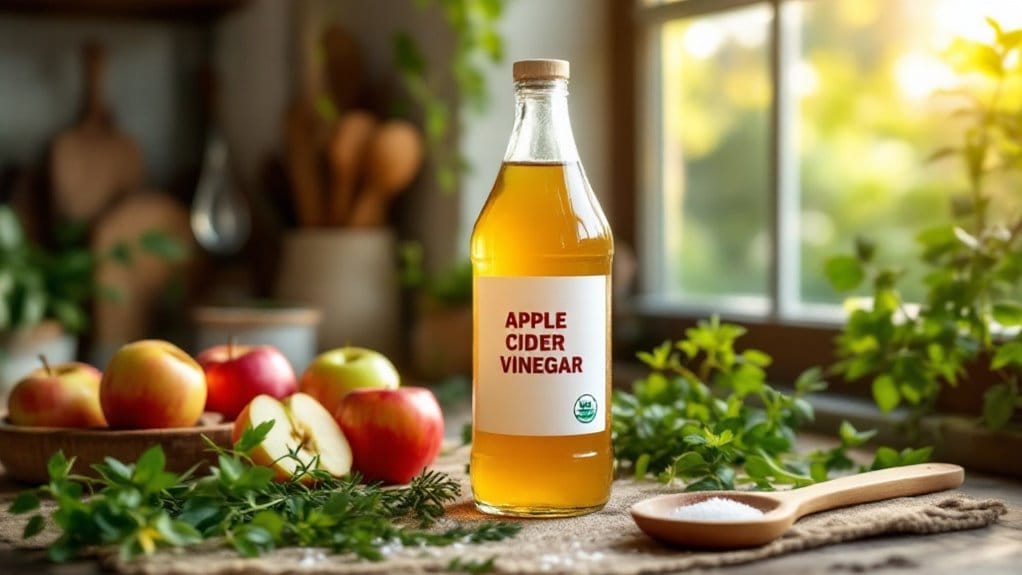
Apple cider vinegar isn’t just a kitchen staple; it’s a versatile tonic that can work wonders for your health. Have you ever wondered why so many people rave about its vinegar benefits? This tangy elixir is packed with acetic acid, which can help regulate blood sugar levels and improve digestion.
Imagine sipping on a revitalizing drink made with apple cider vinegar and water—sounds simple, right?
Sipping a refreshing mix of apple cider vinegar and water is a simple way to boost your wellness.
You can also use it as a natural remedy for sore throats or skin irritations. Just mix it with honey and warm water for soothing relief. Plus, it’s a great addition to your salad dressings, elevating your meals while boosting your wellness.
Gentle Juice Cleanses to Try at Home

After exploring the perks of apple cider vinegar, it’s time to contemplate another delightful way to support your body’s natural cleansing process: gentle juice cleanses. These juice combinations can be a rejuvenating and tasty approach to enjoying detox benefits without overwhelming your system.
Here are three easy juice cleanses to try at home:
- Green Detox Juice: Blend spinach, cucumber, green apple, and lemon for a nutrient-packed drink.
- Carrot-Orange Zest: Combine carrots, oranges, and ginger for a sweet, spicy kick.
- Berry Bliss: Mix strawberries, blueberries, and coconut water for hydration and antioxidants.
These juices not only taste great but also provide essential vitamins and minerals. So, why not give your body a gentle reset? You’ll feel revitalized, and who knows, you might just find your new favorite drink!
Are you ready to blend your way to better health?
Frequently Asked Questions
How Often Should I Perform a Natural Cleanse?
How often should you perform a natural cleanse? Well, frequency guidelines suggest doing it every season or every few months, depending on your body’s needs. A typical cleanse duration lasts about one to two weeks. Think of it as a reset button for your digestive system!
Just remember, it’s essential to listen to your body. Are you feeling sluggish? Maybe it’s time to contemplate a cleanse! It’s all about balance and self-care.
Are There Any Side Effects of Natural Cleansing?
Think of your body as a garden. While cleansing can help remove weeds, it might also stir up some unexpected pests. You might experience detox symptoms like headaches or fatigue, reminding you that cleanse safety is key.
It’s essential to listen to your body and take it slow. Have you ever felt off after trying something new? That’s your body's way of saying, “Hey, let’s be cautious!”
Always consult a professional if unsure!
Can Children Safely Undergo a Natural Cleanse?
Can children safely undergo a natural cleanse? You’ll want to tread carefully here. While some parents swear by cleanse guidelines, children’s bodies are still developing, so their safety comes first. It’s essential to consult with a healthcare professional before starting any cleanse for your child.
After all, what works for adults mightn't be suitable for kids. So, instead of a cleanse, why not focus on a balanced diet for their health?
What Should I Avoid During a Natural Cleanse?
When you're on a cleanse, you’ve got to be careful about what you put in your body. It’s best to steer clear of caffeine consumption and processed foods.
Why? These can mess with your body’s natural rhythms and slow down your progress. Think of it this way: you wouldn’t throw a wrench into a well-running machine, would you?
How Long Does a Natural Cleanse Typically Last?
A natural cleanse typically lasts anywhere from a few days to a couple of weeks, but it depends on the cleanse variations you choose. Duration guidelines suggest starting with shorter cleanses if you're new to the process.
Have you ever wondered how your body might feel after just a week? It’s amazing what a little break can do! Just remember, listening to your body is key, so don’t push it too hard!
Conclusion
So, why not give these natural cleansing methods a shot? You might just feel like a brand-new person, bursting with energy and vigor! Whether it's sipping on lemon water or enjoying a cozy herbal tea, each step can help your body feel refreshed and rejuvenated. Remember, it’s all about balance and listening to what your body needs. Ready to embrace a healthier you? Immerse yourself in these remedies and experience the magic of natural cleansing!




